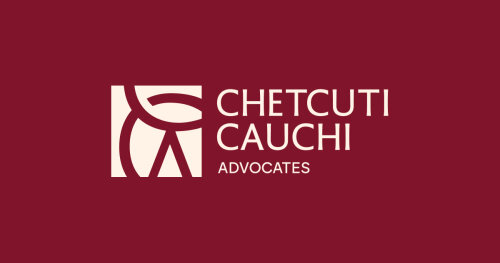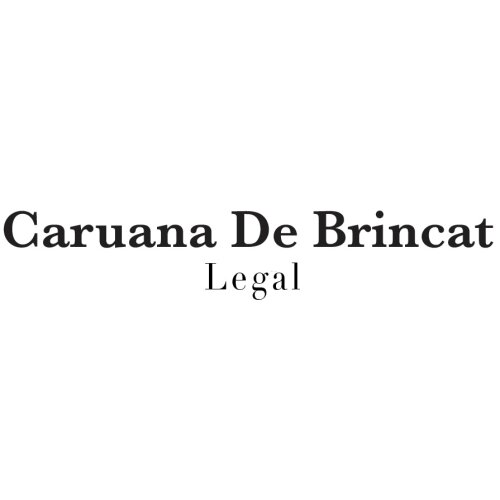Best Acquisition / Leveraged Finance Lawyers in Malta
Share your needs with us, get contacted by law firms.
Free. Takes 2 min.
Or refine your search by selecting a city:
List of the best lawyers in Malta
About Acquisition / Leveraged Finance Law in Malta
Acquisition and leveraged finance law in Malta refers to the legal framework and guidance governing the funding of acquisitions, such as the purchase of companies, assets, or other business ventures, using borrowed capital. Often, a significant portion of the purchase price is financed through debt, which relies on the assets being acquired as collateral. Malta, as an established European Union member state with a thriving financial sector, has developed specialised expertise in facilitating acquisition and leveraged finance transactions. The Maltese legal system combines civil law traditions with EU directives, making it expansive, flexible, and supportive of local and cross-border deals.
Why You May Need a Lawyer
There are numerous reasons why engaging a lawyer is essential when dealing with acquisition or leveraged finance in Malta. Whether you are a corporate buyer, private equity investor, financial institution, or individual, legal advice becomes critical to ensure compliance, mitigate risks, and achieve a smooth transaction. Common scenarios include:
- Acquiring shares or assets of a Maltese company using significant financing
- Negotiating or structuring loan agreements, security documents, or guarantees
- Evaluating and mitigating legal, regulatory, and tax risks associated with the transaction
- Conducting legal due diligence on the target company or assets
- Navigating cross-border financing structures involving Maltese entities
- Dealing with insolvency risks or enforcement of security rights if debts are not repaid
- Ensuring that all regulatory approvals and local compliance requirements are fulfilled
Given the complexity and stakes associated with acquisition and leveraged finance, early legal involvement often makes the difference between a successful deal and costly pitfalls.
Local Laws Overview
In Malta, acquisition and leveraged finance is primarily governed by civil law principles and supplemented by a range of local and European laws. Key aspects relevant to anyone considering an acquisition or leveraged buyout include:
- The Civil Code and Companies Act, which govern company formation, share transfers, mergers, amalgamations, and directors' duties
- Laws regulating security interests, such as mortgages, pledges, and charges, which are critical for lenders to secure their loans
- The Financial Institutions Act and the Banking Act, setting out licensing and operating standards for providers of finance
- Anti-Money Laundering regulations and due diligence obligations for both borrowers and lenders
- Regulations concerning cross-border transactions and EU directives impacting financing structures and security enforcement
- Tax laws, including those that influence the deductibility of interest on acquisition finance and the treatment of transaction costs
- Rules regarding financial assistance, which restrict the ways in which a Maltese company can provide financing or guarantees for the acquisition of its own shares
Malta's robust and stable legal system provides a supportive environment for acquisition and leveraged finance transactions, but attentive compliance with local rules is always required.
Frequently Asked Questions
What is the meaning of leveraged finance in Malta?
Leveraged finance in Malta refers to using borrowed money to fund investment or acquisition activities, typically where a company’s assets or cash flows act as security for the loan. This type of financing allows parties to pursue larger deals than they could fund with equity alone.
What are some common acquisition finance structures used in Malta?
Common structures include direct loans to the acquiring entity, syndicated loans with multiple lenders, mezzanine financing, and vendor financing. Security packages often include pledges over shares, bank accounts, and guarantees from parent companies.
Are there local restrictions on companies providing financial assistance for their own acquisition?
Yes, Maltese law restricts the ways in which a local company can assist in financing the purchase of its own shares. Specific procedures and limits are set out in the Companies Act to prevent abuse and preserve corporate assets.
How are security interests typically created and perfected in Malta?
Security can be created by way of pledge, mortgage, or hypothec. Perfection usually involves written agreements, delivery or registration of security with the appropriate authority, and public recordation where required.
Do lenders require regulatory approval to provide loans in Malta?
Generally, lenders based in Malta must be licensed financial institutions under the Financial Institutions Act or Banking Act. Foreign lenders may also need to comply with local regulations, especially when conducting business on a cross-border basis.
What are the main risks for borrowers undertaking leveraged finance in Malta?
Borrowers risk overleveraging, breaches of financial covenants, loss of control or ownership in enforcement scenarios, and exposure to fluctuating interest rates and foreign exchange rates if foreign currency loans are involved.
Can foreign entities act as guarantors or security providers for Maltese finance deals?
Yes, subject to compliance with both Maltese and the foreign entity’s home jurisdiction’s laws. Due diligence and proper documentation are vital to ensure enforceability of such guarantees or security.
Are there standard forms for loan and security documentation in Malta?
While there are some industry standards, especially for larger deals leveraging international loan agreements, most documents will be tailored to the transaction and must meet local legal requirements as interpreted under Maltese law.
How can creditors enforce their security in the event of a default?
Creditors can enforce security through judicial or, in some cases, out of court proceedings. The process varies depending on the type of security and must follow specific procedures under Maltese law to be effective.
Is legal due diligence required for every acquisition or leveraged finance deal?
While not mandatory by law, legal due diligence is strongly recommended to assess risks, ensure compliance, and identify potential liabilities or regulatory issues before closing any finance or acquisition transaction in Malta.
Additional Resources
If you are seeking further information or assistance, you may wish to contact or consult the following Maltese resources:
- Malta Financial Services Authority (MFSA) - Supervises financial institutions and provides guidance on compliance matters
- Registry of Companies (Malta Business Registry) - Official registry for Maltese businesses and company filings
- Malta Chamber of Commerce - Offers guidance for foreign investors and networking opportunities
- Institute of Financial Services Practitioners - Professional body supporting practitioners in finance law
- Malta Bankers’ Association - Represents local and foreign banks operating in Malta
Next Steps
If you are considering an acquisition or leveraged finance transaction in Malta, it is important to engage an experienced Maltese legal professional as early as possible. Start by outlining your goals and gathering all relevant documents. Schedule a consultation with a reputable Maltese law firm specialising in acquisition and finance transactions. They will provide tailored advice, carry out legal due diligence, assist with structuring the transaction, and ensure compliance with all local rules. This proactive approach helps prevent costly mistakes and promotes a successful outcome in your business dealings.
Lawzana helps you find the best lawyers and law firms in Malta through a curated and pre-screened list of qualified legal professionals. Our platform offers rankings and detailed profiles of attorneys and law firms, allowing you to compare based on practice areas, including Acquisition / Leveraged Finance, experience, and client feedback.
Each profile includes a description of the firm's areas of practice, client reviews, team members and partners, year of establishment, spoken languages, office locations, contact information, social media presence, and any published articles or resources. Most firms on our platform speak English and are experienced in both local and international legal matters.
Get a quote from top-rated law firms in Malta — quickly, securely, and without unnecessary hassle.
Disclaimer:
The information provided on this page is for general informational purposes only and does not constitute legal advice. While we strive to ensure the accuracy and relevance of the content, legal information may change over time, and interpretations of the law can vary. You should always consult with a qualified legal professional for advice specific to your situation.
We disclaim all liability for actions taken or not taken based on the content of this page. If you believe any information is incorrect or outdated, please contact us, and we will review and update it where appropriate.
Browse acquisition / leveraged finance law firms by city in Malta
Refine your search by selecting a city.















